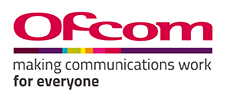There is a lot of advice available for web developers… some free, and some very expensive! How do you know what works? If anyone tells you they can guarantee to get your website in the top ten of search engine results, be careful – that is a downright lie, unless it is in the sponsored results which you pay to advertise in! No-one can guarantee results in the natural search engine listings, as I found out after shelling out £600 on my credit card. Fortunately, I managed to claim the total amount back with the help of my credit card company. If you are prepared to spend the time and effort to optimise your own website, you can get it right up there on MSN, Google and other top search engines. You will need a little patience… it can take up to 2 months for changes in your website to be recognised by search engines. You do not need pay to promote your website. Your running costs can be kept low with budget web hosting, and doing your own SEO work. Here are 8 of my top tips to help you on your way!
1. Website page title – this will be the heading found in search engine results. Make it a descriptive sentence which includes your main keywords. Limit the title to 80 characters (including spaces) to be “robot friendly”.
2. Page description – this will be the descriptive text found in search engine results, so make it attractive to potential clients, and include 2 or 3 main keywords. The recommended maximum is 200 characters (including spaces).
3. Keywords – use words relevant to the website page, imagine which words customers would search for and use those. 20 keywords is the recommended maximum.
4. A quick way to check the number of characters is to copy and paste into a word processing package such as Microsoft Word – highlight the text, click on “Tools”, the “Word Count” for results.
5. Search engines check for consistency between site tile/description tags and the actual page content. So use keywords in the descriptive text which match those in the Title and Description tags.
6. Domain name: if the name of your website contains one or more of your main keywords, this can help improve search engine results. You may wish to choose a name that customers can easily remember, so they can find you easily on the internet, and recommend you to their friends!
7. Alt tags – add a description to images and include main keywords.
8. Research your competitors … do a search for your keywords, and see which companies are listed on the first page of results. If there are a high number of results listed, you may wish to consider using different keyword phrases, so that you target a more niche market with fewer results.
Source by Lin Parker






